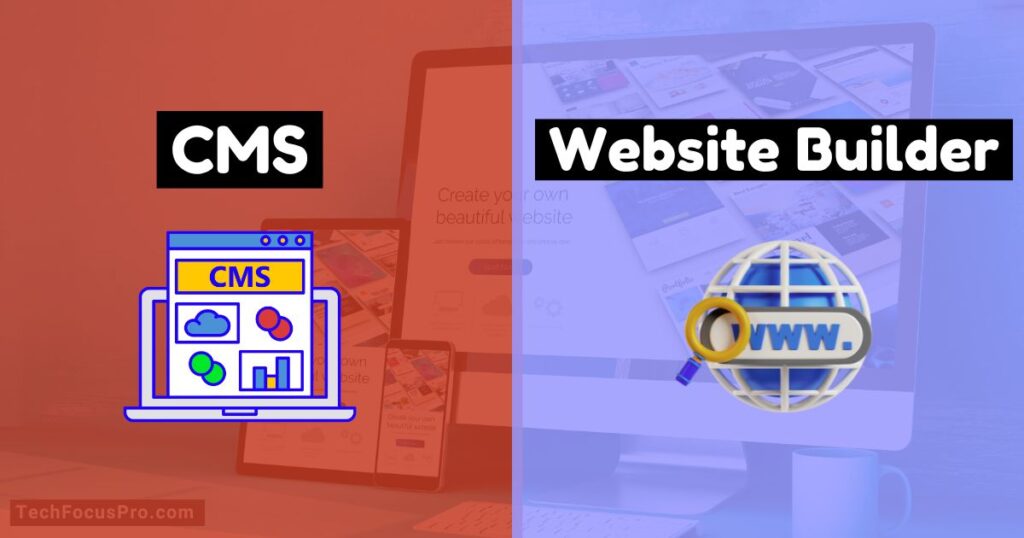
Because every website needs web hosting to go live, choosing the finest web hosting is crucial to maximizing performance. Making a decision might be difficult because there are more than 260 web hosts worldwide, each with different features, pricing plans, support, and goods. We’ll walk you through five easy steps to help you choose the best hosting company for your website. This post will review recommended practices and considerations for selecting a web host.
By the time you finish reading this post, you will have the necessary skills to choose the most suitable web host for your website.
Before you choose a specific hosting company or package, it is crucial to understand the different types of web hosting available. Each type serves different types of websites and serves different purposes.
Shared Hosting
The most popular and reasonably priced kind of web hosting is shared hosting. Under this approach, several websites share a server’s CPU, RAM, and bandwidth. It is an excellent option for personal blogs and small businesses because it is simple to use and reasonably priced. Because shared hosting is so inexpensive and simple to use, it’s a great place to start if you are searching for a cheap web host in India.
Virtual Private Server (VPS) Hosting

A compromise between dedicated and shared server hosting is offered by VPS hosting. A physical server is divided into several virtual servers, each with its own resources. Compared to shared hosting, this hosting provides more control and better performance.
Dedicated Hosting
Dedicated hosting grants you exclusive access to an entire server for your website. If you are a large business seeking optimal performance, enhanced security, and full authority over server configurations, this is the ideal choice for you.
Cloud Hosting
Cloud hosting guarantees excellent performance and reliability through the use of multiple servers to host websites, ensuring high availability and scalability. By distributing resource utilization across a network of servers, the cloud-based approach offers exceptional dependability and performance.
Reseller Hosting
Individuals and companies can purchase hosting space through reseller hosting and then resell it to others. This option is ideal for business owners who want to start their own hosting company or for web designers who want to offer hosting services to their clients.
“Web hosting server is the lifeline of every website. It should be up and running 24/7.”
– Dr. Chris Dayagdag
Comparing Web Hosting Types
When deciding on a web hosting type, it is crucial to take into account the distinctive features of each option. Let’s analyze the advantages and disadvantages of every type, along with their most suitable applications.
Pros and Cons of Each Hosting Type
Shared Hosting:
- Pros: It’s cost-effective and easy to set up, making it a great choice for beginners. The host handles the maintenance, so you don’t need technical skills.
- Cons: Because resources are shared with other users, your website might slow down during high-traffic times. It offers less security and customization than other options.
VPS Hosting:
- Pros: Offers more control and resources than shared hosting while still being affordable. Your site has its own space, providing better performance.
- Cons: More expensive than shared hosting and requires some technical knowledge to manage.
Dedicated Hosting:
- Pros: You get an entire server just for your website, offering top-notch performance and security. It’s customizable to fit specific needs.
- The cons are that it’s the most expensive option and requires technical skills to maintain. It’s best for sites with a lot of traffic.
Cloud Hosting:
- Pros: Highly flexible and scalable, you can easily adjust resources as your site grows or during peak traffic. Often provides good uptime and reliability.
- Cons: Costs can be higher than shared hosting and may fluctuate based on usage. It can be complex to manage without technical expertise.
Best Use Cases for Each Hosting Option
- Shared Hosting for Small Businesses: This is perfect for small businesses or personal websites with low traffic, such as blogs or portfolio sites. It’s a budget-friendly starting point.
- VPS for Medium-Sized Enterprises: Medium-sized businesses that expect moderate traffic and need better performance should consider VPS. It’s ideal for online stores and more prominent blogs.
- Dedicated Hosting for Large Businesses: Ideal for large companies or websites with high traffic that need superior speed, security, and customization. Examples include big eCommerce sites and enterprise websites.
- Cloud Hosting for Flexibility and Scalability: Best for businesses anticipating rapid growth or unpredictable traffic levels, such as tech startups or websites with varying needs. Cloud hosting adapts to your requirements without downtime.
Key Factors to Consider When Choosing Web Hosting
CMS vs. Website Builder

Website builders and content management systems (CMSs) are only two of the many platforms the best web hosts support with their hosting services. Building a successful website requires careful consideration of the platform to be used.
Creating websites from scratch can be made easier with the help of a content management system (CMS), although it does require some learning. To effectively utilize a CMS, you will need to possess technical knowledge to handle tasks like ensuring security and optimizing speed. The most popular CMS platforms currently in use are Drupal, Joomla, and WordPress.
If you have made up your mind to use a specific CMS, opt for a web hosting solution that is specifically designed for that platform, like managed WordPress hosting or Joomla web host. Some web hosting solutions also offer an auto-installer feature to quickly set up the CMS you prefer.
Storage and Bandwidth
When selecting a web host, it is important to take into account the bandwidth and storage they offer. The term “storage” refers to the space on the server where all website files and data, such as pictures and videos, are stored.
The storage capacity required for your website is determined by the website type and its content. Hostinger’s Premium hosting plan, designed for small-to-medium-sized businesses, blogs, and individual websites, provides 100 GB of SSD storage. In contrast, bandwidth refers to the maximum amount of data a website can transfer within a specific timeframe, usually monthly.
There are two types of bandwidth:
Metered: Establishes a monthly cap on the volume of visitors the website can receive. If traffic hits that level, visitors might be unable to access your website.
Unmetered: There won’t be monthly data transfer restrictions; the hosting provider will only set the server’s capacity.
Speed and Optimization

Improving the functionality of your website can be achieved by choosing a web host that offers outstanding speed and optimization tools. To start with, it is important to acquire a hosting service that utilizes a fast web server. One example is Hostinger, which employs the Lite Speed Web Server known for its advanced caching engine. By compressing cache files instead of generating new requests at the same time, the loading speed of web pages is significantly enhanced.
The speed of a website can be affected by the location of its servers. Although hosting your website near the server of your web host can improve loading times, it is recommended to select a web provider that offers multiple server locations.
Security
In order to safeguard private information on your website from hostile attacks, it is crucial to prioritize security. When it comes to security, there are several factors to take into account. First and foremost, access management is key. It is essential to have a dependable supplier who can provide a robust and secure system that effectively limits the privileges of administrators and users. Additionally, it is important to ensure that only approved IP addresses are permitted for back-end operations.
Certificates: The security mechanism known as Secure Sockets Layer (SSL) encrypts the communication between a web server and a browser. It keeps unauthorized parties from viewing or altering the sent data. To secure your website, look for a web host with a free SSL certificate.
Firewalls: A web server should have several tiers of firewalls to monitor traffic, identify malware, and defend sensitive data from DDoS attacks.
Network Monitoring: For maximum server security, a reputable hosting company monitors its network for questionable activity and routinely updates the hardware and software on its servers.
Automated Backups and Updates: The hosting provider must automatically update the program to the most recent version and carry out routine site-level backups. This prevents data loss and other security flaws caused by out-of-date software.
Ease of Setup and Use
When researching web hosting services, it is vital to also consider their ease of use. This is crucial as hosting control panels vary in their user-friendliness.
Also Explore: Top Free WordPress Plugins to Enhance Your Site’s Functionality
Conclusion
It can be quite difficult to find the perfect web host for your website due to the abundance of options available. In this article, we have outlined the necessary steps to help you select the most suitable web host. Each of these steps entails conducting thorough research to comprehend the specific requirements of your website and identify the appropriate type of web hosting.
To assist you in streamlining your search, we have incorporated crucial considerations that should be taken into consideration while choosing a web host.
Platform: Verify that the hosting company is compatible with the platform you intend to use to create your website. Remember that you don’t need to look for a different hosting company if you’re utilizing a website builder.
Storage and Bandwidth: You must have adequate server resources from the supplier to store all of your website’s files. Furthermore, having unmetered bandwidth increases the likelihood that your website can manage heavy demand.
Speed and Optimization: The user experience and search engine optimization of your website are adversely affected by slow-loading servers. Locate hosting companies that have optimized their resources.
Security: Verify if the supplier offers malware detection, encryption techniques, and DDoS protection. It is also crucial to perform automatic updates and backups.
Ease of Setup and Use: A user-friendly and easy-to-navigate interface will make managing your files, domains, and software much easier.
If you are looking for an affordable web hosting service or considering shared hosting in India, considering these factors will assist you in making the optimal decision for your website.
FAQs
What is web hosting?
Individuals or companies can establish an online presence for a website by utilizing web hosting services. This involves storing the website files on a server that is managed by a web host.
How do I know which web hosting type is right for my business?
When deciding on your website’s hosting, take into account its size, expected traffic, and technical requirements. Dedicated or cloud hosting is recommended for larger websites that receive significant traffic. On the other hand, shared hosting is suitable for smaller websites with lower visitor numbers.
What are uptime guarantees, and why are they important?
Hosting services make uptime guarantees to ensure that your website remains accessible and functional. Maintaining a high uptime is essential for preserving website accessibility and fostering customer trust.
Why is customer support essential in web hosting?
When faced with issues on your website, having reliable customer support guarantees swift resolution. Seek out providers that offer round-the-clock assistance through multiple channels like chat, phone, and email.
Can I switch hosting providers if I’m not satisfied?
Before committing to a hosting provider, it is advisable to review their terms and support options, as most of them do offer migration services. However, it is important to note that the migration process may result in temporary downtime.
Best Guide to Choosing the Right Web Hosting for Your Business – Tech Focus Pro






